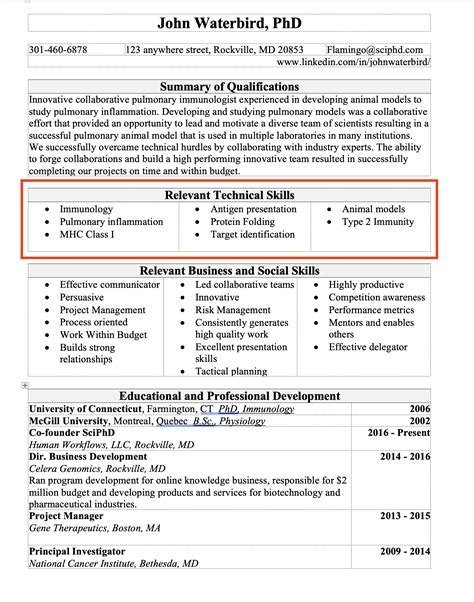Learn the best practices for identifying, developing, and highlighting technical skills while quantifying proficiency for optimized career growth.Are you looking to enhance your resume with the right technical skills? In today’s job market, it’s essential to showcase your expertise in various technical areas to stand out to potential employers. This blog post will explore the importance of technical skills for your resume and provide guidance on how to effectively identify, develop, highlight, and quantify your technical proficiencies.
In the competitive job market, having a strong grasp of your technical abilities can make all the difference in securing your desired position. We’ll begin by discussing the process of identifying your technical skills, followed by how to effectively develop clear and concise descriptions for these skills. We’ll then delve into the importance of highlighting relevant technical skills on your resume and conclude with tips on quantifying your proficiency in these skills. Whether you’re a seasoned professional or just starting in your career, this post will provide valuable insights on how to present your technical abilities effectively on your resume.
Identifying Technical Skills
When it comes to identifying technical skills for your resume, it’s important to start by evaluating your own experience and expertise. Consider the specific tasks and responsibilities of your previous roles, and pinpoint any software, tools, or programming languages that you used on a regular basis. Additionally, think about any specialized training or certifications you have obtained that demonstrate your proficiency in a particular technical area.
Another key aspect of identifying technical skills is taking into account the requirements of the job you are applying for. Review the job description and highlight the technical skills that are specifically mentioned or implied. This will help you tailor your resume to showcase the most relevant technical abilities for the position.
Furthermore, seek feedback from colleagues, mentors, or supervisors to gain insight into your areas of strength and expertise. They may be able to provide valuable input on the technical skills that have made a significant impact in your work and are worth highlighting on your resume.
Developing Technical Skill Descriptions
When it comes to crafting a stellar resume, one of the most important sections to focus on is the technical skills section. This is where you can showcase your specific abilities and proficiencies that are relevant to the job at hand. However, simply listing out technical skills is not enough. You need to develop concise and clear skill descriptions that effectively communicate your capabilities to potential employers.
One way to develop strong technical skill descriptions is to use action verbs to start each bullet point. This not only adds dynamism to your resume, but it also provides a clear indication of what you are capable of. Instead of simply stating “proficient in Java,” you can say “developed robust applications using Java for web-based platforms.” This not only conveys your skill level, but also gives insight into the scope of work you have accomplished.
Another key aspect of developing technical skill descriptions is to quantify your proficiency whenever possible. Whether it’s through years of experience, project successes, or certifications, providing tangible numbers and achievements can make a huge impact. For example, instead of just saying “familiar with data analysis,” you can say “leveraged data analysis skills to increase sales by 15% in Q4.” This demonstrates the real-world impact of your technical abilities.
Highlighting Relevant Technical Skills
Highlighting Relevant Technical Skills
When it comes to creating a resume, it’s important to highlight the relevant technical skills that will make you stand out to potential employers. These skills are specific abilities and knowledge that are required to perform a particular job. For example, if you’re applying for a job in software development, relevant technical skills might include programming languages, database management, and software testing.
One way to highlight your relevant technical skills on your resume is by creating a separate section dedicated to these abilities. This section can be titled Technical Skills or Technical Proficiencies and can include a bulleted list of the specific skills that you possess. By organizing these skills in a clear and concise manner, you make it easy for hiring managers to quickly assess your qualifications for the position.
Another way to highlight your relevant technical skills is by incorporating them into the descriptions of your work experience. Instead of simply listing your job duties, take the opportunity to showcase the specific technical skills that you utilized in each role. This not only demonstrates your proficiency in these areas, but also provides concrete examples of how you have applied your technical skills in a professional setting.
Quantifying Technical Skill Proficiency
When it comes to identifying technical skills for your resume, it’s important to be able to quantify your proficiency in those skills. Employers want to know not only what technical skills you possess, but also how well you can actually use them. Quantifying your technical skill proficiency can set you apart from other candidates and give potential employers a clear understanding of your abilities.
One way to quantify your technical skill proficiency is by providing specific examples of how you have used those skills in previous roles. For example, instead of simply listing proficient in Java, you could say developed and implemented a Java-based inventory management system that improved efficiency by 20%. By providing concrete examples of how you have used your technical skills to achieve specific results, you are able to demonstrate your proficiency in a tangible way.
Another way to quantify your technical skill proficiency is by obtaining relevant certifications or completing advanced training courses. By earning certifications or completing additional training, you can demonstrate that you have not only acquired the necessary technical skills, but that you have also taken the initiative to further develop and validate those skills. This can provide potential employers with an added level of confidence in your technical abilities.
